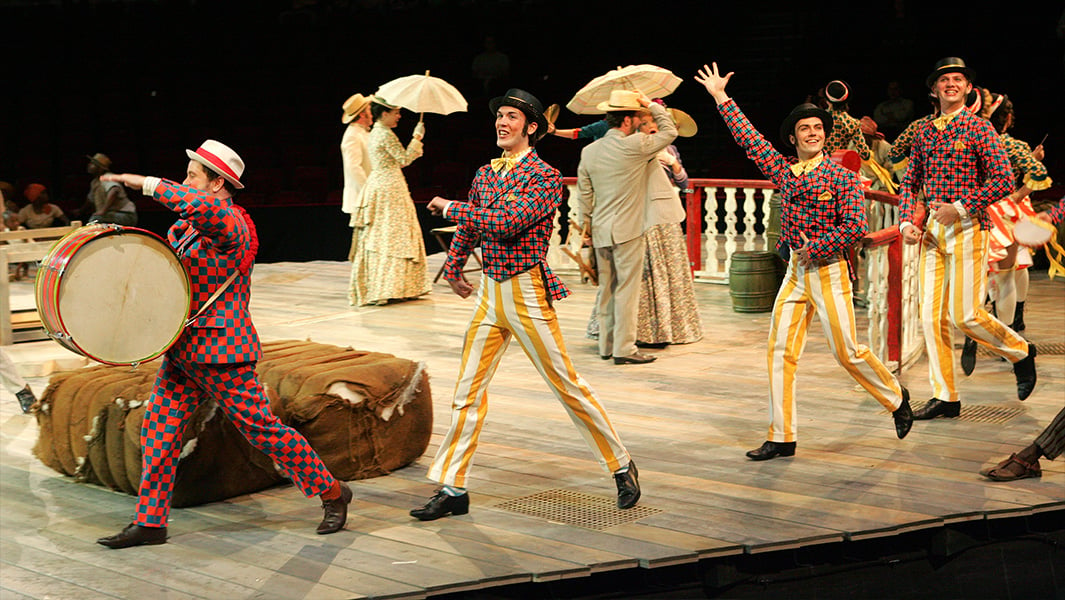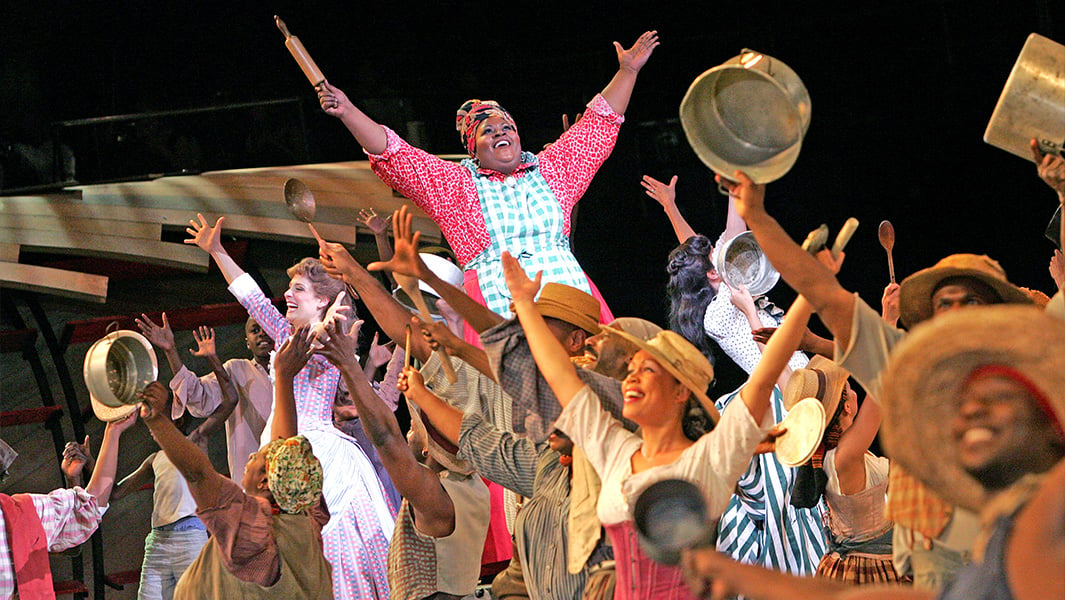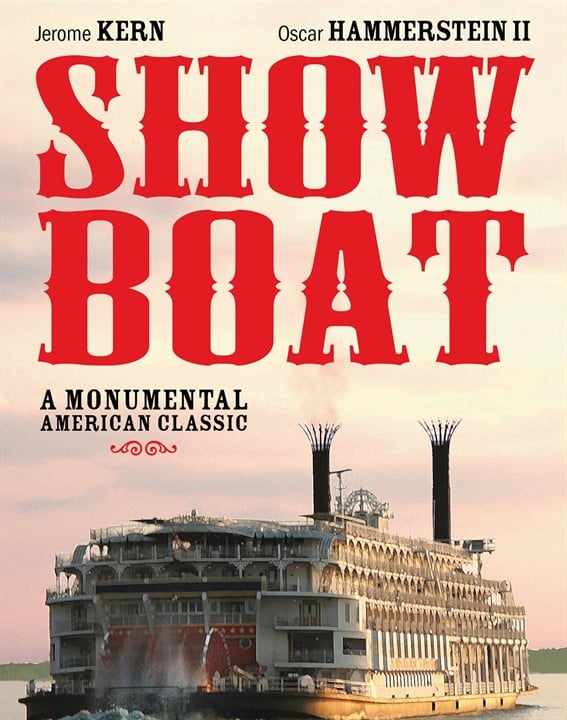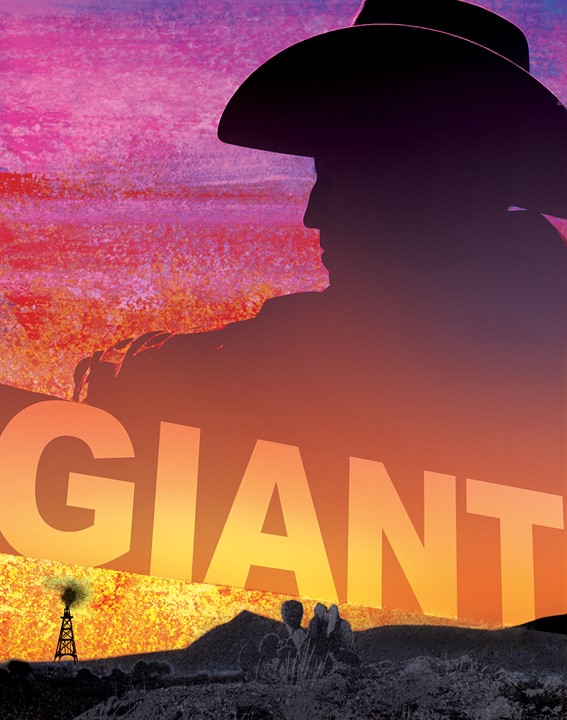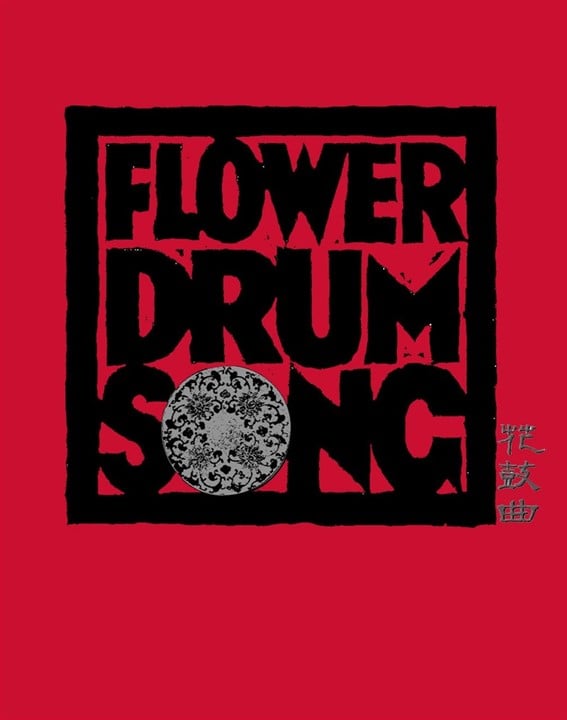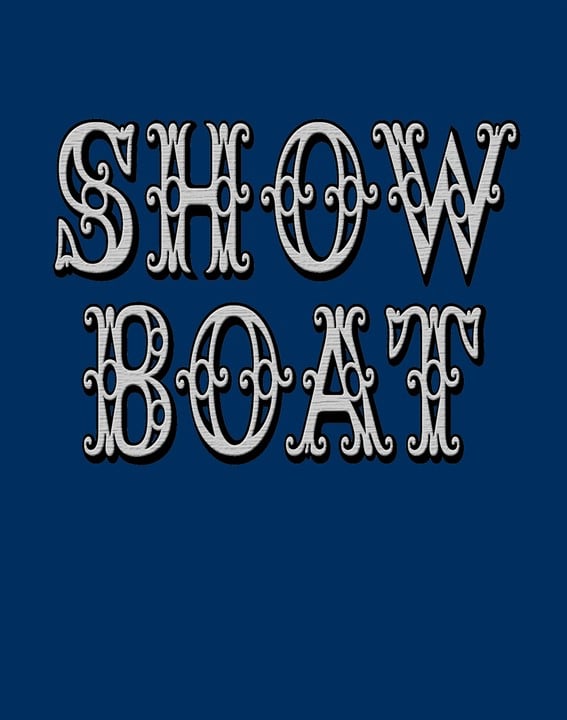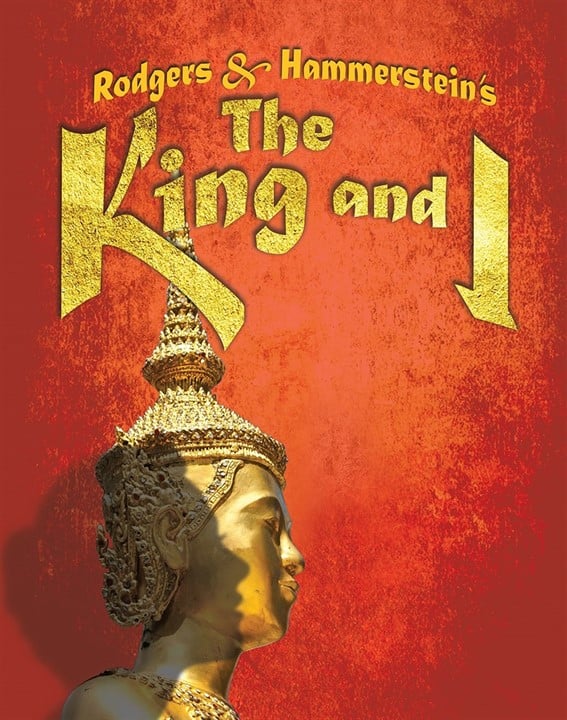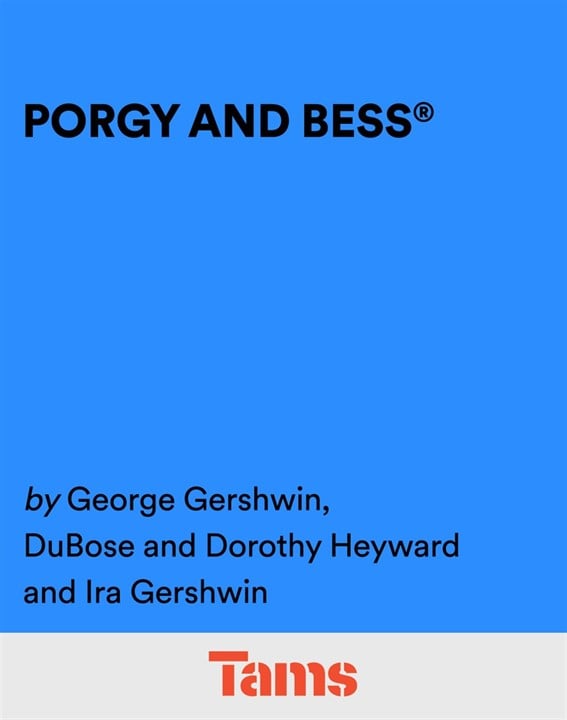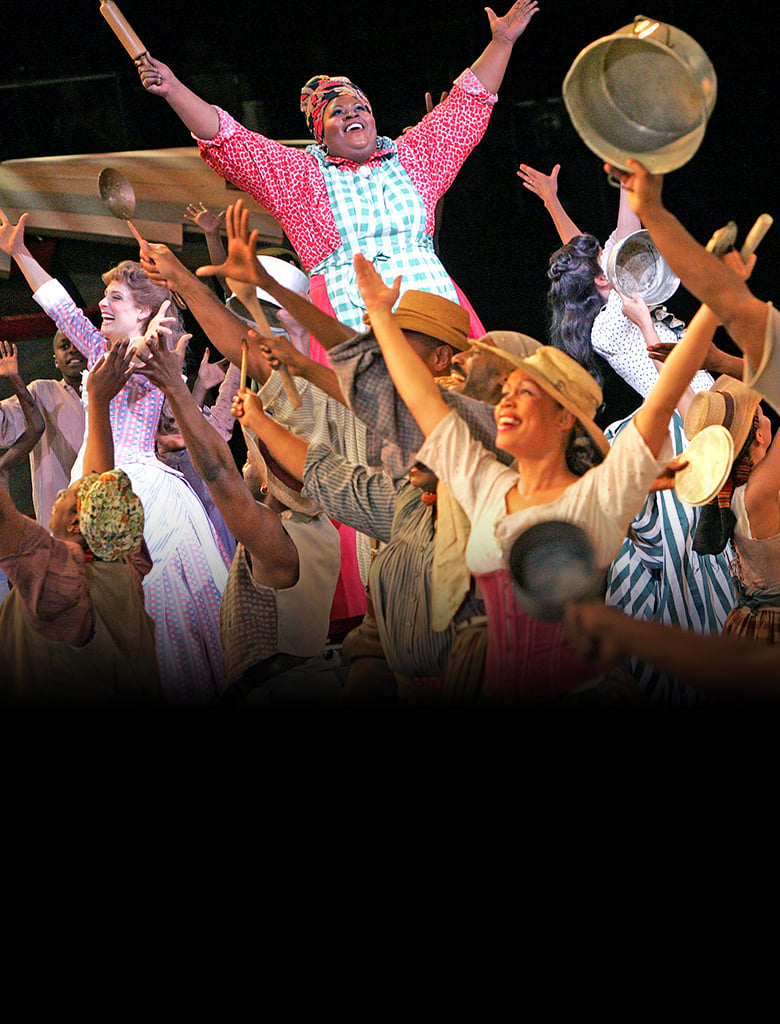
A CONCORD THEATRICALS TITLE
Show Boat (Harold Prince Version)
Full-Length Musical, Comedy
Music by Jerome Kern
Book and Lyrics by Oscar Hammerstein II
Based on the novel Show Boat by Edna Ferber
Image: 2006 Royal Albert Hall Production (Tristram Kenton)
-
Duration
More than 120 minutes (2 hours) -
Subgenre
Adaptation (Literature), Period, Docudrama/History -
Target Audience
Appropriate for All Audiences, Adult
Accolades
- Winner! 1995 Tony Award, Best Revival of a Musical
Winner! 1995 Drama Desk Award, Outstanding Musical
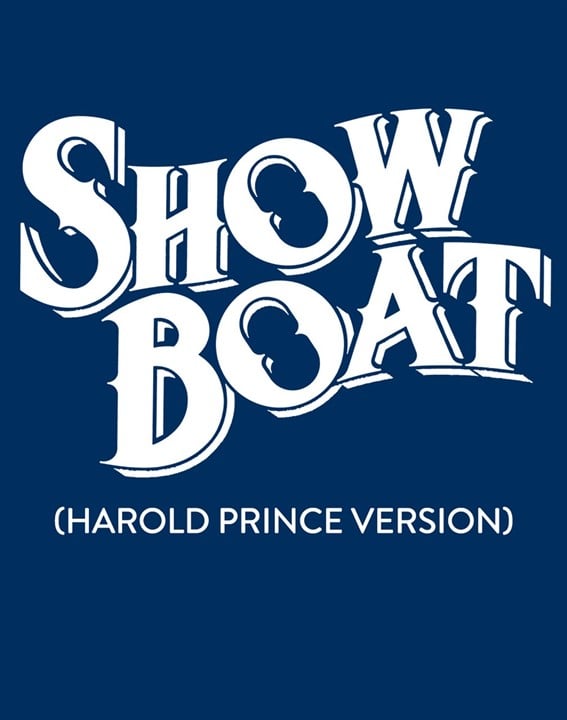
Details
Summary
Since its premiere in 1927, Show Boat has never stopped
moving. For over seven decades, this seminal musical has continued to
evolve on a journey that has reflected the ongoing development of the
lyric theatre, confirming its status as the pivotal work bridging
operetta and contemporary musical theatre. After three film versions,
numerous Broadway and London revivals, countless tours and several recordings,
legendary director Harold Prince took the helm for a new Broadway
production in 1994 that instantly became the blockbuster hit of the
season. With Oscar Hammerstein's eldest son William serving as advisor,
Prince studied all previous versions of Show Boat and, with the
celebrated choreographer Susan Stroman, developed a version of the
classic that was hailed as a triumph by critics and audiences alike.
Spanning the years from 1880 to 1927, this lyrical masterpiece, centered around the Mississippi show boat Cotton Blossom, concerns the lives, loves and heartbreaks of three generations of show folk and their lifelong friends. Show Boat follows the story of the Hawkes family, including the captain’s naive daughter Magnolia, who wants to be a performer, as she marries a gambler and moves with him to Chicago. When his debts compound, he deserts her and their young daughter. Magnolia's selfless best friend Julie, a performer on the Cotton Blossom, faces arrest on charges of miscegenation, which is illegal, and she spirals into despair. The passing of time reunites Magnolia and her now-grown daughter with Magnolia's estranged husband, who returns offering a second chance at familial happiness.
History
Show Boat opened on Broadway at the Ziegfeld Theatre on December 27, 1927. The show was a great critical and popular success, running for a total of 572 performances. In 1936, Universal Studios released a film adaptation of the musical featuring Irene Dunne, Allan Jones, Hattie McDaniel and Paul Robeson. In 1951, MGM released a full-color film adaptation, using many of the songs from the stage adaptation but reworking much of the plot. After its initial run, Show Boat returned to Broadway no less than six times: in 1932 and 1946 at the Ziegfeld Theatre; in 1948 and 1954 at New York City Center; in 1983 at the Uris (Gershwin) Theatre featuring Donald O’Connor as Cap’n Andy; and in 1994, again at the Gershwin, under the direction of Harold Prince. Prince’s 1994 production earned Show Boat its longest Broadway run with 947 performances. In 2011, a new version of Show Boat, adapted for a smaller cast and orchestra, opened at the Goodspeed Opera House in East Haddam, Connecticut, under the direction of Rob Ruggiero.
WRITERS’ NOTES
Edna Ferber:
As the writing of the musical play proceeded (and its ups and downs were even more heartbreaking than those of most musical plays) I heard bits and pieces of the score. Once or twice everything was seemingly abandoned because Ziegfeld said he couldn’t produce the play. Almost a year went by. I had heard “Can’t Help Lovin’ Dat Man” with its love-bemused lyric... I had melted under the bewitching strains of “Make Believe” and of “Why Do I Love You?”... And then Jerome Kern appeared at my apartment late one afternoon with a strange look of quiet exultation in his eyes. He sat down at the piano. He didn’t play the piano particularly well and his singing voice, though true, was negligible. He played and sang “Ol’ Man River.” The music mounted, mounted, and I give you my word my hair stood on end, the tears came to my eyes, I breathed like a heroine in a melodrama. This was great music. This was music that would outlast Jerome Kern’s day and mine. I have never heard it since without that emotional surge. When Show Boat was revived at the Casino Theater in New York just four years after its original production at the Ziegfeld I saw a New York first-night audience, after Paul Robeson’s singing of ‘Ol’ Man River,’ shout and cheer and behave generally as I’ve never seen an audience behave in any theater in all my years of playgoing.
Alice Hammerstein Mathias:
For the 1946 revival of Show Boat, my father Oscar Hammerstein II inserted a note in the program giving P.G. Wodehouse full credit for the lyrics to “Bill.” Wodehouse did write the original lyric, but my father contributed to the song as performed in Show Boat. In addition, as was customary in the 1920’s, the authors interpolated three ‘modern’ selections to the second act. They are John Philip Sousa’s “The Washington Post March,” Joseph E. Howard’s “Goodbye, My Lady Love,” and Charles K. Harris’ waltz “After the Ball.” All three have become part of the traditional score of Show Boat.
Cast Attributes
Keywords
- Time Period 1920s, 1910s/WWI, 1900-1910, 19th Century
- Setting Along the Mississippi River and in Chicago, 1887-1927.
- Features Period Costumes
- Duration More than 120 minutes (2 hours)
Media
“Show Boat has become part of the American experience, part of our folklore, with ‘Ol’ Man River’ occupying a permanent place in our collective unconscious.” – The New Yorker
“Excellent ...perilously close to being the best New York has seen...an exceptionally tuneful score...every ingredient that the perfect musical should have.” – The New York Times
“Show Boat dates from 1927 but...it's for the ages.” – Chicago Tribune
“A jewel of the American theater...Featuring so many perfect scenes and songs that it is impossible to mention them all. Show Boat is the granddaddy of every great musical ever written!” – Los Angeles Times
“A masterpiece!...Show Boat is a great and richly entertaining musical.” – Houston Chronicle
Videos
Hal Prince and Show Boat
"Ol' Man River"
Show Boat 1994 Broadway Revival
Photos

Image: 2006 Royal Albert Hall Production (Tristram Kenton)

Image: 2006 Royal Albert Hall Production (Tristram Kenton)
Music
- Musical Style Classic Broadway, Operetta
- Dance Requirements Difficult
- Vocal DemandsModerate
- Orchestra Size Large
- Chorus Size Large
Licensing & Materials
- Licensing fees and rental materials quoted upon application.
PLEASE BE ADVISED: There are multiple versions of this title. Before you proceed, please double-check to ensure that you are applying for the version you want. We will not be able to refund rental or shipping fees if you pay for the wrong version. If you’re not sure which version best suits your needs, you may purchase a perusal for each available version.



